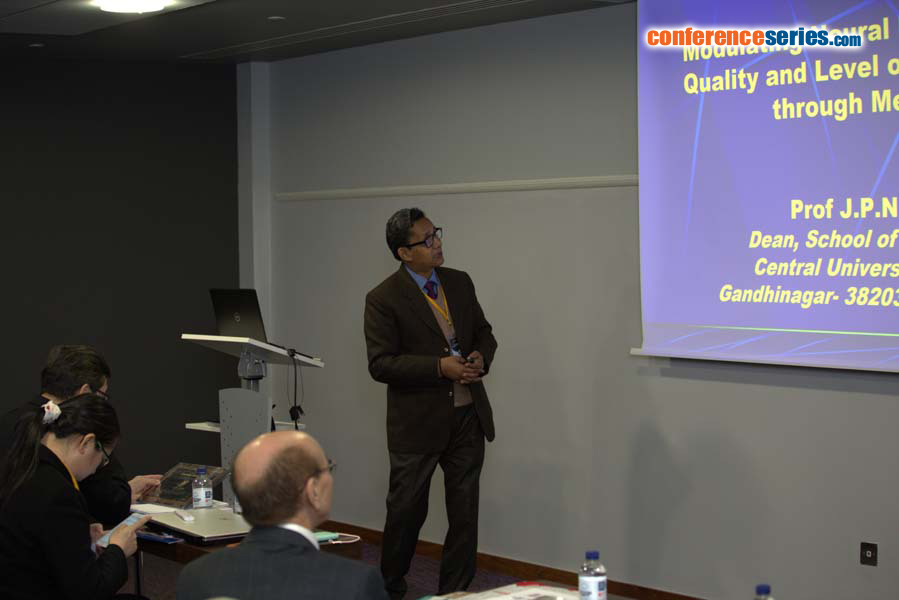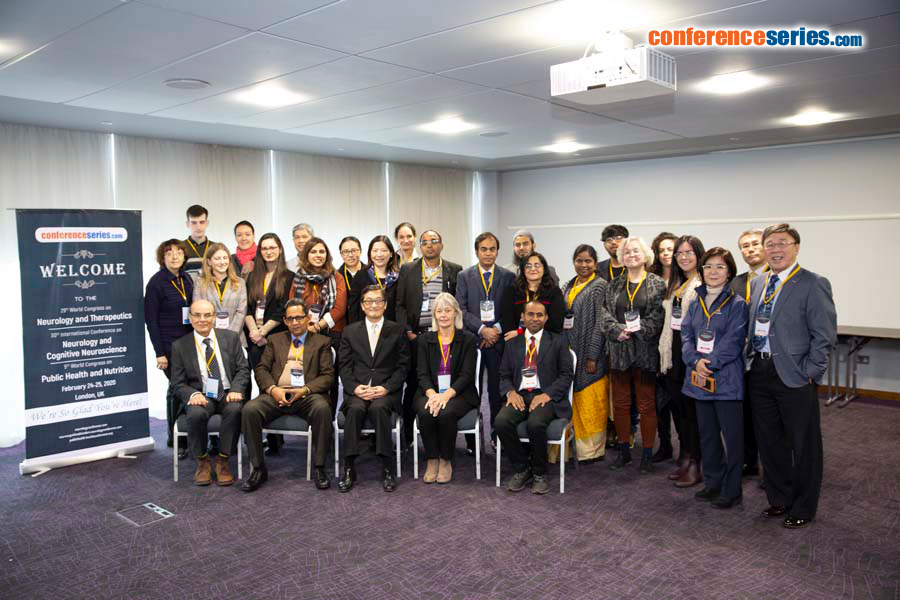
JPN Mishra
Central University of Gujarat, India
Title: Modulating neural functions, sleep quality and level of consciousness through meditation
Biography
Biography: JPN Mishra
Abstract
Statement of the Problem: The system of Preksha Meditation (PM) is originated from Jain Canonical literature which is based on “Perception of Thoughts”. It is imbued with spiritual powers that cleanse the mind and body of negative energy and thereby facilitate the improvement in various sensory and motor functions of brain, reduces level of stress and enhances the sleep quality and level of consciousness.
Aims: The purpose of this study was to assess the efficacy of PM on adolescent post-graduate students by measuring parameters related to psychological status, neurological functions, sleep quality and level of consciousness.
Methodology: Four components of PM were applied on 50 adolescents. The assessment parameters viz. alpha brain waves, sleep duration, component of REM and Non-REM, Sleep spindles; awareness subjectivity and state of awareness; neurotic reactions, anxiety level, mental ability, fear and emotional level were applied.
Findings: The experimental participant students exhibited significantly enhanced number of alpha brain wave omission and reduced level of stress hormones in blood, which led them to remain in state of relaxation. Total Non-REM duration of sleep was found increased with significantly improved sleep quality too, with greater awareness. They were having reduced fear, frustration and anxiety level and emotionally well balanced.
Conclusion with Significance: Synchronization of brain waves with alpha waves predominating may be correlated with deep relaxation associated with better sleep quality and improved psychological state. Positive changes recorded may be attributed to decreased sympathetic activity and parasympathetic dominance, modulated by cortical functions in Central Nervous System. Findings of the study provided a viable and composite programme for health and well-being in adolescents.
Recent Publications:
• Singh A and Srinivasan N (2019) Concentrative (Sahaj Samadhi) meditation expands subjective time. PsyCh J 8(1):28-35.
• Deepak KK (2019) Meditation induces physical relaxation and enhances cognition: A perplexing paradox. Progress in Brain Research 244:85-99.
• Parker S (2019) Training attention for conscious non-REM sleep: The yogic practice of yoganidrÄ and its implications for neuroscience research. Progress in Brain Research 244:255-272.
• Raffone A, Marzetti L Del Gratta C2, Perrucci MG, Romani GL and Pizzella V (2019) Toward a brain theory of meditation. Prog Brain Res. 244:207-232.
• Balaji PA, Varne SR and Ali SS (2012) Physiological effects of yogic practices and transcendental meditation in health and disease. North American Jounals of Medical Sciences 4(10):442-448.



